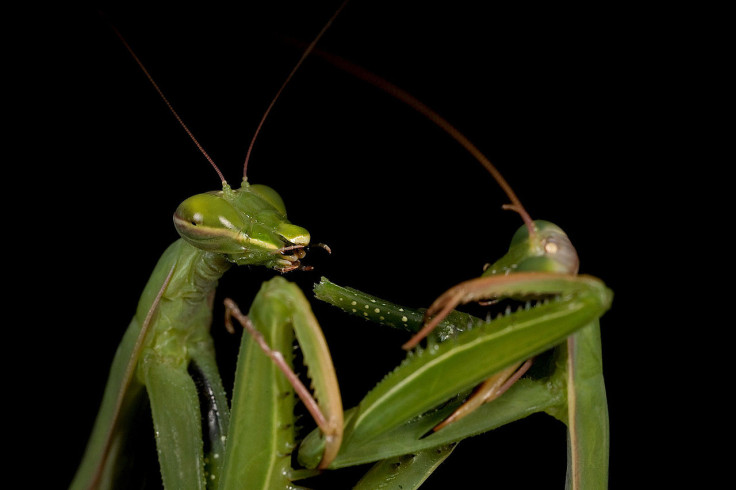Why do female praying mantis eat males after sex? Scientists uncover fertility benefits
Being eaten by females means male praying mantis are more able to invest in offspring.

Female praying mantis eat their male partner after sexual intercourse as it may increase their fertility and ensure the potential survival of the species, scientists have said. They believe that from an evolutionary perspective, male praying mantis may actually benefit from being eaten.
In their study, published in Proceedings of the Royal Society B, the authors decided to investigate what purpose 'sexual cannibalism' serves in the survival of the species.
In nature, male mantises are eaten by females in about 13 to 28% of sexual encounters and during the mantis mating season, males can make up as much as 63% of the female diet.
They discovered that more eggs were laid by females who engage in acts of 'sexual cannibalism'.
The practice also appeared to dramatically increase male 'investment in offspring' - a term which is defined in evolutionary biology as parental expenditure in time and energy that benefits one offspring at a cost to parents.
More amino acid
The scientists used a species of praying mantis known as Tenodera sinensis to study the practice of sexual cannibalism among the insects. Males were fed crickets doused with traceable radioactive amino acids - the building blocks of all the proteins in the body.
They were then allowed to mate with females. Half of the twenty-one pairs progressed to sexual cannibalism while the other half were prevented from turning to cannibalism by the scientists. In the bodies of females and in the eggs they laid, the scientists traced back how much of the male amino acids could be found.
They discovered that eggs and reproductive tissues of cannibalistic females contained significantly more male-derived amino acids than those of non-cannibalistic females. About 89% of amino acids from eaten males were found in their females. Males who escaped being eaten however were only able to pass on about 25% of their amino acids acids via ejaculation.
There was also an increase in the number of eggs produced subsequent to sexual cannibalism - suggesting the practice increases fertility. Females who ate their partners produced on average just over 88 eggs, compared to an average of 37.5 for those who did not.
More research needs to be carried out on a larger number of mantis but already, the scientists say their work supports the theory that sexual cannibalism marks the ultimate form of male parental investment in offspring.
© Copyright IBTimes 2025. All rights reserved.






















